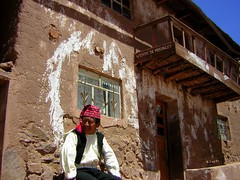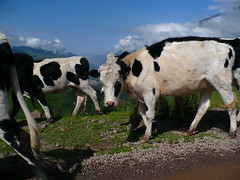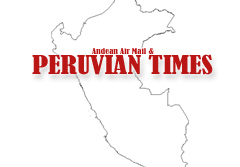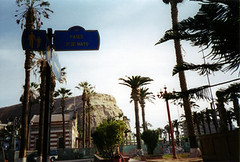The plight of Afro-Peruvians has long been overshadowed by the conflict
between the Spanish and Indian cultures but there is reason to believe
that could be changing.
Category: "History"
Petroglyphs of Checta
The rock art at Checta may be as much as 5000 years old, some say more. Carved onto rocks above the Chillon valley in the department of Lima, the petroglyphs hold the yet uninterpreted secrets of some of the most ancient Peruvians.
Morro Solar
The Morro Solar of Chorrillos was the scene of a battle, was once an exclusive beach resort in the 1800s and nowadays is home to an observatory, some monuments and the exclusive Regatta’s club.
United Nations demands Peru abandon culture and traditions
Stop producing coca leaves and abandon traditions established millennia ago by banning your people’s coca consumption, the United Nations International Narcotics Control Board has demanded of Peru and Bolivia.
Mysterious Pyramid Complex Discovered in Peru
The remnants of at least ten pyramids have been discovered on the coast of Peru, marking what could be a vast ceremonial site of an ancient, little-known culture, archaeologists say.
In January construction crews working in the province of Piura discovered several truncated pyramids and a large adobe platform (see map). Officials from Peru’s National Institute of Culture (INC) were dispatched to inspect the discovery.
The oldest construction in Peru
Now a seeming regular occurrence in Peru, ruins and civilisations thought to have been the oldest in the Americas have again be surpassed by new discoveries that push back the start of history in Peru and the American continent.
Lima, Peru, 1944
Before Lima’s explosive growth it was a small, quiet, clean and very modern city. This documentary video, funded by the United States Office of the Coordinator of Inter-American Affairs in 1944 shows us a time that many older Limeños hold in high regard and with great nostalgia.
Tantarica
Little is known of these ruins as no formal studies have been carried out. Left in ruins, and overgrown with shrubs, what we do know that it was constructed in the same time as Kunturwasi by the same pre-Inca culture, with Tantarica being more of a centre of population than only a place of religious worship.
Kunturwasi
High in the hills above the Rio Jequetepeque valley that leads from the northern Peruvian coast into the mountains of Cajamarca, is a temple named Kuntur Wasi, the House of the Condor. Looking out over a vast area from its mountain top perch, from this ancient temple you can survey an area as vast as a condor could.
Ventanillas of Cajamarca
It’s a cultural trait that existed in pre-columbian times all along the Andes to various extents. After carving out small holes in the sides of cliffs, ancient cultures would use them to bury their elite. In Cajamarca this was also done, leaving us with some of the best preserved cliff-face tombs in the country.
Carnival in Cajamarca
It’s carnival time in Cajamarca!!
…a period of song, dance and water fights. This carnival is known to be the most wild in the country and perhaps the second most famous on the continent after the one that takes place in Brazil. Whether a sunny day or not, dressing for rain would be a very good idea – expect to br drenched in buckets of water.
Cuarto del Rescate
It was in Cajamarca that the Inca empire started down its path to swift destruction. The newly arrived group of Spanish lead by Francisco Pizarro, aiming to conquer the Inca empire, arrived in Cajamarca to be met by Emperor Atahualpa and his army. After tricking him into entering the city with only a light guard they captured him, ransomed him and killed him.



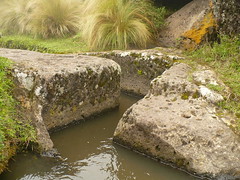
![Peru celebrates Independence Day with fountain of booze [Featured]](http://farm4.static.flickr.com/3236/2697186491_f7a74ae0da_m.jpg)

